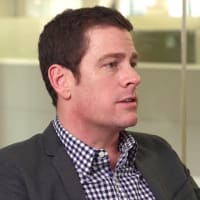The Infinite Manager: An exercise to make you rethink how you manage projects

How would you prefer to be managed, by Theory X or Theory Y?
MIT professor Douglas McGregor described two theories of motivation and management: Theory X and Theory Y.
Theory X takes a pessimistic view of people. It assumes that they don’t like their work—so they have little motivation, and want to do as little work as possible. Theory X managers therefore have an authoritarian style. They manage via control and incentives. They believe that all employees’ activities should be measurable and traceable, so that management can use “carrot and stick” to reward and reprimand them. Theory X is believed to work when workers are intrinsically unmotivated by the work they do—because they don’t enjoy it and they don’t believe in its importance.
Theory Y is the opposite of Theory X. It has an optimistic view of people, believing that they are keen to work and want to do a good job. A Theory Y manager is trusting and collaborative—acting more like a supportive service function than a bossy boss.
Our company runs according to Theory Y.
Theory Y depends upon…
A company can be run according to Theory Y only if its team members are internally motivated. Such motivation requires that the company gives its team members what the author Daniel Pink describes as “the three noble motivators”: mastery, autonomy, and purpose:
Motivator 1: Purpose

Salary isn’t everything; people desire to do something that has meaning and is important. Our favorite example of this is Patagonia. In 2022, founder Yvon Chouinard set out the company’s mission in the simplest possible terms:
“We’re in business to save our home planet.”
More generally, CEO Jack Welch talks about how people are motivated by winning, and seek out opportunities to win in their personal and work lives. By having a goal, a company gives its team members a chance to win.
Our purpose is defined by our mission and our values. Both are designed to attract kindred spirits—people who share our passion. We are lucky that many people are passionate about conversion rate optimization. The role of CRE’s managers is to keep the mission and values alive.
Motivator 2: Mastery

Working toward self-improvement and mastery of a craft tends to be a better motivator than competing against others. Constant improvement and visible progress are great motivators. Apple’s hiring page says, “Join a team and inspire the work.”—which is an excellent example of appealing to people’s desire for mastery. We also like how Steve Jobs got his team to sign the inside of the case for the first Macintoshes—because “artists sign their work.”
In our case, we expose our team members to the world’s most sophisticated clients, on cutting-edge projects, and with peers who are motivated to master their craft. Also, we are constantly on the lookout for people who have what we call “the excellence factor”—people who have mastered many activities.
Motivator 3: Autonomy

Once people have a purpose, and a chance of mastery, they desire to self-direct their work, rather than just to comply with authority.
We trust our team members to work remotely, to manage their time as they see fit, and to take initiative to do what’s right.
Hiring motivated people
We hire people who are motivated by our definitions of purpose, mastery, and autonomy. Then, when they join us, we can expect that they will continue to try hard (why would they stop now?) so the job of our managers is to support them.
People are motivated by reciprocity and expectations from their peers more than from their manager. In other words, people are motivated by “not letting the rest of the team down.” That’s another reason to hire the right people; people are motivated by having colleagues they respect and admire.
An exercise to make you rethink how you manage projects
Business consultant Julia Langkraehr teaches the following three-minute exercise.
(You might want to close your eyes in between questions.)
Step 1: Think of the best team you have ever been in—one in which the team members worked well together toward an impressive goal. It could be a sports team, a work team, a hobby group—or any other highly functional team in which you’ve participated:
Step 2: Recall the following:
- Who were the team members?
- What was the goal?
- How was it defined?
- Was there a vision?
- How did team members relate to one another?
- Who was the leader?
- How did it feel to be in the team?
- What motivated the team members?
- How did the team differ from other teams you have been in?
It’s likely that your recalled experience is an example of Theory Y management. It’s also likely that it doesn’t reflect the traditional approach to management (SMART goals, GANTT charts, etc.) you have learned elsewhere—to the point that you may not have considered the experience to be “proper management.”
Either way, when you’re managing others, use your recalled experience as your “winning model.”

How much did you like this article?
What’s your goal today?
1. Hire us to grow your company
We’ve generated hundreds of millions for our clients, using our unique CRE Methodology™. To discover how we can help grow your business:
- Read our case studies, client success stories, and video testimonials.
- Learn about us, and our unique values, beliefs and quirks.
- Visit our “Services” page to see the process by which we assess whether we’re a good fit for each other.
- Schedule your FREE website strategy session with one of our renowned experts.
Schedule your FREE strategy session
2. Learn how to do conversion
Download a free copy of our Amazon #1 best-selling book, Making Websites Win, recommended by Google, Facebook, Microsoft, Moz, Econsultancy, and many more industry leaders. You’ll also be subscribed to our email newsletter and notified whenever we publish new articles or have something interesting to share.
Browse hundreds of articles, containing an amazing number of useful tools and techniques. Many readers tell us they have doubled their sales by following the advice in these articles.
Download a free copy of our best-selling book
3. Join our team
If you want to join our team—or discover why our team members love working with us—then see our “Careers” page.
4. Contact us
We help businesses worldwide, so get in touch!
© 2026 Conversion Rate Experts Limited. All rights reserved.















